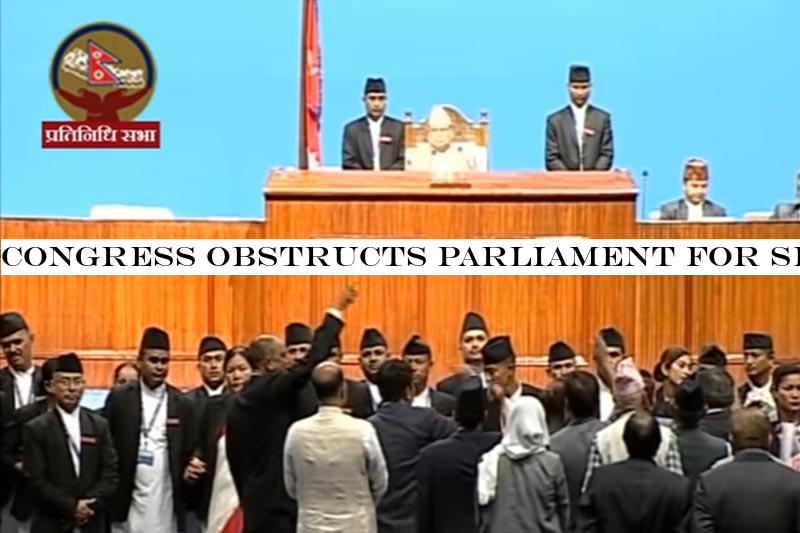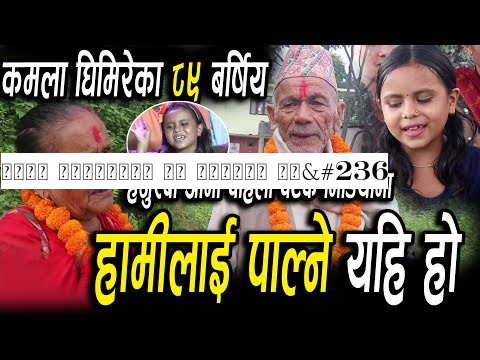Music
Trailers
DailyVideos
India
Pakistan
Afghanistan
Bangladesh
Srilanka
Nepal
Thailand
Iraq
Iran
Russia
Brazil
StockMarket
Business
CryptoCurrency
Technology
Startup
Trending Videos
Coupons
Football
Search
Download App in Playstore
Download App
Best Collections
Nepal
Kathmandu, September 16
Federation of Nepali Journalists issued a press release condemning the arrest of nine journalists, including its secretary and central committee members who were held from the premises of Radio Nepal inside Singha Durbar today after their talk with the Radio Nepal administration failed.
FNJ office bearers had gone to hold dialogue with Radio Nepal administration seeking reinstatement of three journalists — Prakash Bahadur Bam, Chakra Kunwar and Sunita Rawal — who were working for Radio Nepal Dipayal Transmission for years, but were ‘arbitrarily& sacked by Radio Nepal administration.
Among the arrested journalists are FNJ Secretary Ram Prasad Dahal, FNJ centre committee members Yam Birahi, Janmadev Jaisi, Min Bam, FNJ Doti Chapter Chair Yogendra Balayar and other journalists Ajay Babu Siwakoti, Dilip Paudel, Prakash Bahadur Bam and Chakra Kunwar.
These journalists were arrested from Radio Nepal premises in Singha Durbar when some of the them tried to padlock the office after their talks with Executive Director of Radio Nepal Suresh Kumar Karki failed.
FNJ said journalists were arrested by police from the premises of Radio Nepal while they were returning to their offices after a failed negotiation with Radio Nepal administration.
FNJ also objected to heavy deployment of security personnel on the premises of Radio Nepal during the talks today. FNJ said arrest of those journalists, who were holding talks to resolve the working journalists& problems, was a violation of labour rights and freedom of expression.
Meanwhile, the main opposition Nepali Congress and its parliamentary party also issued a press release condemning the arrest of journalists.
Stating that journalism was the foundation of democracy, NC parliamentary party said NC would always stand in favour of independent free press. The NC party and its parliamentary party demanded reinstatement of the sacked journalists.
FNJ central committee member Yam Birahi said Radio Nepal Dipayal Transmission Centre sacked journalists, who had worked for 13 to 14 years , without giving them a chance to be heard.
&FNJ is fighting for the sacked journalists as they are victims of arbitrary action of Radio Nepal,& Birahi said and added that the sacked journalists had staged a sit-in in Dipayal for almost two weeks, but they came to Kathmandu after their grievances were not addressed.
&Radio Nepal administration sacked these journalists to recruit the ruling partyloyalists,& Birahi added. He said talks with Radio Nepal failed today as the executive director of Radio Nepal refused to reinstate the sacked journalists.
The arrested journalists were later released from custody in the evening.
The post FNJ condemns arrest of nine journos, including secretary appeared first on The Himalayan Times.
- Details
- Category: Nepal
Read more: FNJ condemns arrest of nine journos, including secretary
Write comment (94 Comments)Kathmandu, September 16
After the government agreed to file a first information report against the culprits of Banke incident, the main opposition Nepali Congress was in no mood to obstruct the proceedings of the House of Representatives today.

Nepali Congress lawmakers obstruct the proceedings of the House of Representatives in New Baneshwor, Kathmandu, on Monday, September 16, 2019. Photo: Screenshot of Parliament live video/Youtube
However, the ruling Nepal Communist Party (NCP) lawmaker Nanda Lal Rokaya played a catalytic role in infuriating NC lawmakers in the House, compelling them to obstruct House proceedings for the second day.
Rokayastatement came immediately after NC Whip Puspa Bhusaladdress in the House regarding the Banke incident. Bhusal said the government should investigate the incident and bring to book the culprits.
Bhusal said that many NC cadres and leaders, including the partyBanke District President Kiran Koirala, had sustained injuries when the ruling NCP cadres barged into a hall in Khajura Rural Municipality on September 12 and started attacking everyone indiscriminately.
NCP lawmaker Rokaya refuted Bhusalallegations and said that no NCP leader or cadres were involved in the attack. Rokaya even went to the extent of accusing NC lawmakers of telling lies in the House. Rokaya also said that no case should be filed against Suman Malla, ward chair of Khajura Rural Municipality-1, who is accused of instructing party cadres to spoil the NCprogramme.
Hearing this, NC lawmakers stood up from their seats and asked Speaker Krishna Bahadur Mahara to allocate time to reply to Rokayastatement, but Mahara didn&t do so, which led to obstruction of House proceeding for the second day too.
Obstructing the House proceeding, NC lawmakers shouted slogans like ‘parliamentary neutrality should be maintained in the House&, ‘state horror should be stopped&, and ‘culprits should be punished&. After NCobstruction, Speaker Mahara postponed the meeting for Wednesday.
Yesterday, NC had obstructed proceedings of both the houses — HoR and NA — demanding that police be told to accept the FIR against those who assaulted its members in Banke. The party had yesterday said it would obstruct proceedings of both the houses unless its demands were fulfilled.
Yesterday, Home Minister Ram Bahadur Thapa had told the HoR and the National Assembly that so far police had rounded up six people, including Nirmal Khatri, Roshan Singh Thakur and Lok Bahadur Shahi for their alleged involvement in the incident.
Thapa had also assured that the government had taken the incident seriously.
The post Congress obstructs Parliament for second day over Banke incident appeared first on The Himalayan Times.
- Details
- Category: Nepal
Read more: Congress obstructs Parliament for second day over Banke incident
Write comment (96 Comments) The Voice of Nepal Season 2 - 2019 - Episode 10 VideoLink: https://trailer.ecroaker.com/component/search/?videoid=8qqjYFC4aMQ
The Voice of Nepal Season 2 - 2019 - Episode 10 VideoLink: https://trailer.ecroaker.com/component/search/?videoid=8qqjYFC4aMQ- Details
- Category: Nepal
Read more: The Voice of Nepal Season 2 - 2019 - Episode 10
Write comment (95 Comments) अब जनता जाग्ने बेला भयो, नत्र देश रहँदैन, रावलले आत्मसमर्पण गर्दैन STV Chat VideoLink: https://trailer.ecroaker.com/component/search/?videoid=CwiuAHK1Uvs
अब जनता जाग्ने बेला भयो, नत्र देश रहँदैन, रावलले आत्मसमर्पण गर्दैन STV Chat VideoLink: https://trailer.ecroaker.com/component/search/?videoid=CwiuAHK1Uvs- Details
- Category: Nepal
Read more: अब जनता जाग्ने बेला भयो, नत्र देश रहँदैन, रावलले आत्मसमर्पण गर्दैन STV Chat
Write comment (98 Comments) Shakti 16th September 2019 Episode VideoLink: https://trailer.ecroaker.com/component/search/?videoid=CepvUZdX98I
Shakti 16th September 2019 Episode VideoLink: https://trailer.ecroaker.com/component/search/?videoid=CepvUZdX98I- Details
- Category: Nepal
Read more: Shakti 16th September 2019 Episode
Write comment (95 Comments) कमला घिमिरेका ८९ बर्सका हजुरबा आमा पहिलो पटक_हामीलाई पाल्ने यहि हो kamala Ghimire Grandfather-&Mother VideoLink: https://trailer.ecroaker.com/component/search/?videoid=1QY5ToONhIY
कमला घिमिरेका ८९ बर्सका हजुरबा आमा पहिलो पटक_हामीलाई पाल्ने यहि हो kamala Ghimire Grandfather-&Mother VideoLink: https://trailer.ecroaker.com/component/search/?videoid=1QY5ToONhIY- Details
- Category: Nepal
Page 1357 of 1636

 5
5





